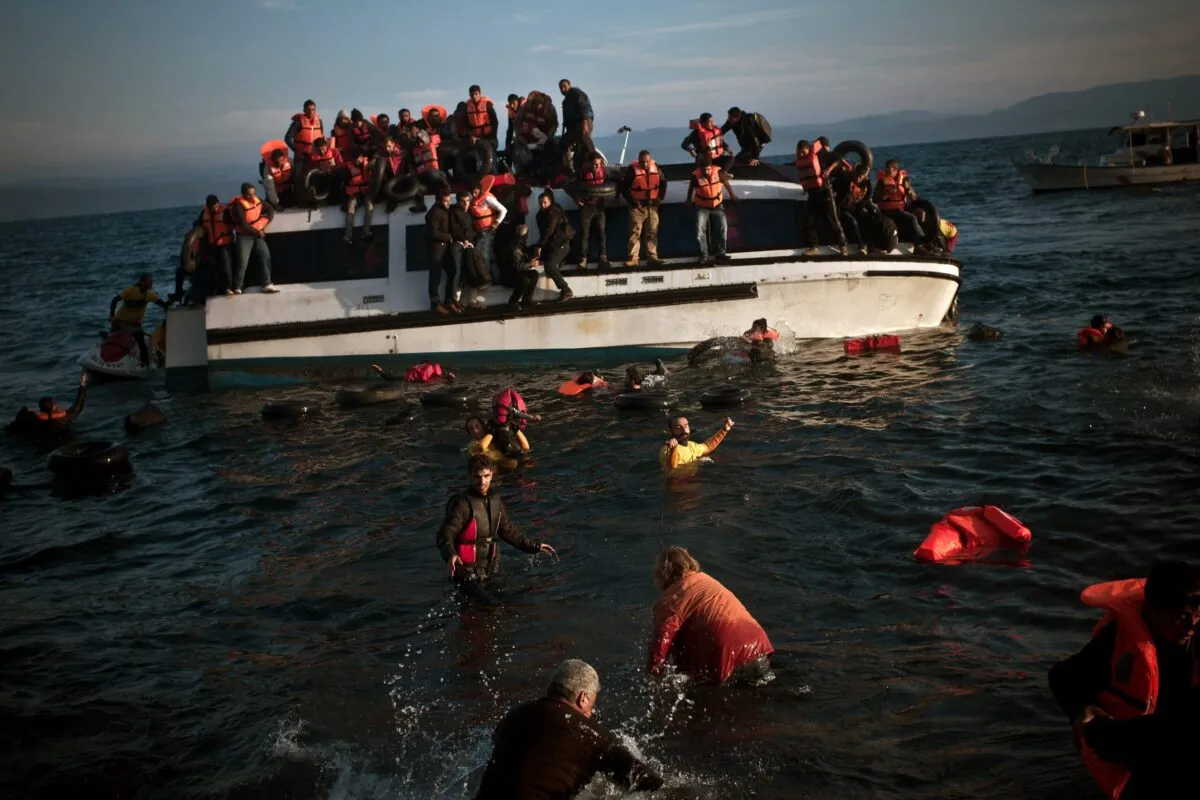By: Kyle Zhu
All of them knew the risk of boarding a flimsy fishing boat overseas. But it didn’t feel like they had a choice. One of the Mediterranean’s deadliest shipwrecks was not without cause. All of them had their own problems. And for Matloob, it was money.
Matloob Hussain, 42, lived in Greece for his job where he was paying for more than 20 extended family members, until his Greek residency renewal was rejected. He had no choice but to return to Pakistan, where he would suffer from an economic crisis. His brother, Adiil Hussain, says, “We don’t leave because we want to. There is simply nothing for us in Pakistan.”
For Thaer Kalid al-Rahal, it was his son’s cancer that forced him onto the path of no return. When Khalid was diagnosed with leukemia and needed a bone marrow transplant, he was incapable of providing the money, and he needed to get to Europe for a job to pay off the procedure. Abdulrahman Yousif al-Rahal, cousin of Thaer, explained, “Thaer thought he didn’t have a choice.”
The poorly-made fishing trawler left from Tobruk, Libya. Only 104 survivors made Greece. 82 deaths have been confirmed, hundreds more never seen.
Half the passengers were Pakistani. An estimated 350 Pakistanis were on board, yet of the 104 survivors, 47 was Syrian, 43 Egyptian, 12 Pakistani and 2 Palestinian.
On June 14, a billionaire and many businessmen planned a voyage in the North Atlantic, where their disappearance as it dove towards Titanic wreckage caused immediate headlines and high-expense searches and rescues. The rickety trawler did not.
The average ticket onto the boat was around $4500. A desperate figure for the most desperate people. However, after collecting the money, the process would be delayed for a month while the lucky ones got to rent cramped apartments next to the endless blue sea. The unlucky ones slept in the yard. The house was “with a big yard and big walls and people at the door with guns,”, a survivor recited.
Matloob Hussain, the Pakistani returning to Greece through smuggling for money to feed his family, called his brother before the ship departed. Adiil recounted, “He said the boat was very bad. He said they loaded people on the boat like cattle.” When asked why Matloob hadn’t refused to board, he explained that the smugglers had guns and knives.
News of the shipwreck leaked June 14, where lifeguards save more than 100 but find at least 17 people drowned. The families of all the migrants and the refugees were waiting for answers. Police arrested a smuggler but he provided no whereabouts of the missing. Rising rumors claim they’re dead.
Adiil looked for his brother. He left details of Matloob at the survivor hospital after being turned away. He then went to the survivor reception center. Many survivors knew Matloob as the man in the yellow shirt. But he was out of their memories since the capsize. He still had hope. He registered DNA with authorities and spoken to other families, but he didn’t know what else he would do. He would carry photographs of him in his pocket, grieve in pain, and would tell Matloob’s daughter Arfa that his father was simply in the hospital, waiting for her. But with her pressing for answers, Adiil is filled with more dread and guilt day by day.
Khalid, son of Traer, wanted to see his father too. But no one could explain to him quite clearly a concept they didn’t quite grasp themselves.











